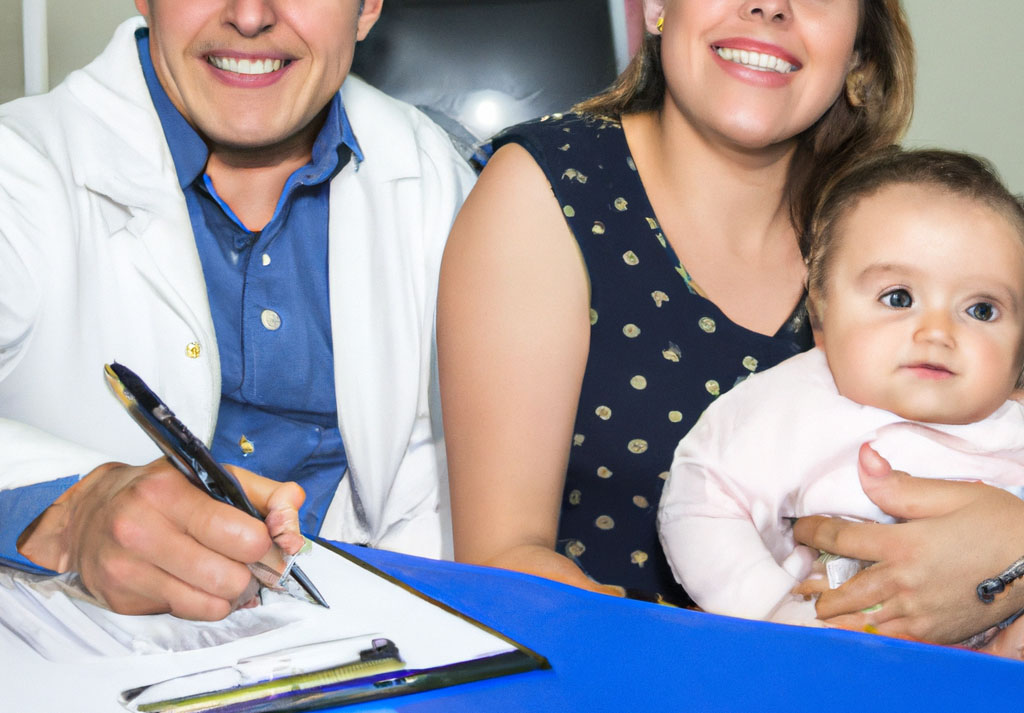The best way to parenthood can only be told by some.

21 June 2020 08:04 AM
Diarrhea in babies is common and can be caused by a variety of factors, including infections, food intolerances, dietary changes, and other environmental factors. Diarrhea can be dangerous for babies as they can lose important fluids and nutrients, which can lead to dehydration and other health problems. Fortunately, there are preventative measures that parents can take to help prevent diarrhea in babies. In this article, we will discuss some of the best ways to prevent diarrhea in babies.
Exclusive breastfeeding.
Exclusive breastfeeding for the first six months of life can help prevent diarrhea in babies. Breast milk contains antibodies that can help protect babies from infections that can cause diarrhea. Also, breast milk is easy to digest and can help prevent stomach irritation that can lead to diarrhea.
Proper cleaning.
Hygiene is important to prevent diarrhea in babies. Be sure to wash your hands often, especially before feeding your baby. It is also important to properly clean bottles, pacifiers and other baby accessories.
Introduction of solid foods.
When the time comes to introduce solid foods into your baby’s diet, it is important to do so gradually and carefully. Introduce one new food at a time and watch the baby’s reaction. If you notice signs of diarrhea or an upset stomach, stop that food and see your doctor.
Clean water.
Make sure the water you use to prepare formula or for the baby to drink is clean and free of contaminants. If you are not sure about the quality of the water in your area, consider boiling or using bottled water.
Hygienic food.
Make sure that the food that the baby eats is well cooked and properly prepared to prevent contamination by bacteria or parasites. Avoid raw or uncooked foods, such as meat, fish, and eggs.
Adequate hydration.
Proper hydration is important to prevent diarrhea in babies. Make sure the baby is getting enough fluids to avoid dehydration. If the baby is nursing, they may not need extra water.
.FEVER.
Fever in babies can be alarming for parents, but it’s important to remember that fever is a normal response of the body to infection or illness. Although a fever itself is not dangerous, it can be a sign of an underlying infection or disease, so it is important to pay attention to the baby’s symptoms and treat the cause of the fever. In this article, we will discuss some ways to prevent fever in babies and help keep babies healthy.
Proper temperature control.
Make sure the baby is dressed appropriately for the room temperature and is not exposed to sudden changes in temperature. It is important to monitor the baby’s temperature to prevent fever. If the room is too hot, you can use a fan or air conditioner to keep the baby cool.
Maintain hydration with water or exclusive breastfeeding.
It is important to keep the baby hydrated to prevent fever. Make sure the baby is getting enough fluids to avoid dehydration. If the baby is nursing, they may not need extra water. If you are taking formula, make sure the baby is getting enough water and is not thirsty.
Adequate rest.
Adequate rest is important to prevent fever in babies. Make sure that the baby is getting enough sleep and that he is not exposed to excessive activity or stress.
.BRONCHITIS.
Bronchitis is a common condition in babies, especially during the colder months of the year. Bronchitis is an inflammation of the bronchi, which are the tubes that carry air to the lungs. In babies, bronchitis can be caused by a viral or bacterial infection, and it can be very dangerous if not treated properly. In this article, we will talk about how to prevent and care for bronchitis in babies.
Avoid tobacco smoke.
Exposure to tobacco smoke can increase the risk of babies developing bronchitis. It is important to make sure that your baby is not exposed to tobacco smoke.
Avoid contact with sick people.
Diarrhea can be caused by viral or bacterial infections. It is important to avoid contact with sick people to prevent the transmission of infections. If someone in your home is sick, be sure to wash your hands frequently and avoid sharing personal items.
Immunizations.
Make sure your baby is up to date with the immunizations recoProvide comfort to the baby Ear infection can be painful and uncomfortable for the baby. Parents and caregivers can comfort the baby by using warm or cold compresses on the affected ear, gently massaging the area around the ear, and offering hugs and comfort.mmended by your doctor. This can help prevent infections that can cause bronchitis.
Hydration
It is important to keep the baby well hydrated to help loosen the mucus in the lungs. Make sure the baby drinks enough fluids, either by breastfeeding or formula. If your baby is breastfeeding, she may need to nurse more often.
Steam
Steam can help loosen mucus in the lungs and make it easier for the baby to breathe. You can use a humidifier in the baby’s room or have the baby inhale the steam from a hot shower.
Keep baby comfortable.
Make sure baby is dressed appropriately for room temperature. Keep baby warm but not too warm.
Nasal cleansing.
Nasal cleansing can help relieve congestion and make it easier for the baby to breathe. You can use a suction bulb to suck out the mucus from the baby’s nose.
Medicines.
If your baby has a fever or pain, talk to your doctor about using medicines to treat these symptoms. Do not give your baby aspirin, as it may increase the risk of Reye’s syndrome.
Medical control..
If your baby has symptoms of bronchitis, it is important to take him to the doctor to be examined. Your doctor can perform tests to determine if your bronchitis is caused by a viral or bacterial infection and prescribe the appropriate treatment.
.EAR INFECTIONS.
Ear infection is a common condition in babies and young children. It occurs when bacteria or viruses enter the middle ear and cause inflammation and irritation. Although it can be painful and uncomfortable for the baby, the infection usually goes away on its own. However, it is important to take steps to prevent infection and treat it properly when it occurs. Here are some preventive and care measures that parents and caregivers can take to help protect babies from ear infection.
Maintain good hygiene.
Good hygiene is essential to prevent infections in babies and young children. This includes regular hand washing with soap and water to prevent the spread of bacteria and viruses. Parents and caregivers should also carefully clean items the baby touches regularly, such as toys, bottles, and pacifiers.
Maintain good hygiene.
Breastfeeding can help prevent ear infections in babies. Breast milk contains antibodies that help protect the baby from infection and strengthen the immune system. Breastfed babies have also been shown to be less likely to develop ear infections than formula-fed babies.
Keep baby upright during feeding.
Keeping the baby upright during feeding can help prevent ear infection. This is because when the baby is lying down while feeding, fluid can build up in the middle ear and increase the risk of infection. It is recommended to keep the baby in an upright position for at least 30 minutes after feeding.
Avoid excessive use of pacifiers.
Excessive use of pacifiers can increase the risk of ear infection in babies. It is recommended to limit the use of pacifiers and wash them regularly with soap and water.
Control fever.
Ear infection is often accompanied by a fever. Parents and caregivers can control a baby’s fever with over-the-counter medications such as acetaminophen or ibuprofen. It is important to follow your doctor’s instructions and the medication label to ensure proper dosing and frequency.
Provide comfort to the baby.
Ear infection can be painful and uncomfortable for the baby. Parents and caregivers can comfort the baby by using warm or cold compresses on the affected ear, gently massaging the area around the ear, and offering hugs and comfort.
Manage symptoms.
Symptoms of an ear infection, such as ear pain, fever, and irritability, can last for several days. Parents and caregivers should watch for any changes in symptoms and monitor them appropriately.
Follow the doctor’s instructions.
It is important to follow the doctor’s instructions regarding the treatment of ear infection. The doctor may prescribe antibiotics if the infection is caused by bacteria, or medications to relieve pain and reduce inflammation. Parents and caregivers should be sure to follow the doctor’s instructions regarding dosage and frequency of medication.
Avoid exposure to risk factors.
It is important to avoid exposure to risk factors that can worsen the ear infection in the baby. This can include exposure to secondhand smoke, lying down feeding, and excessive use of pacifiers. It is also important to maintain good hygiene to prevent the spread of bacteria and viruses.
Schedule a follow-up visit.
After your baby’s ear infection has been treated, it’s important to schedule a follow-up visit with your doctor. During this visit, the doctor can evaluate the baby’s ear and make sure the infection has completely resolved.
.COMMON COLD.
Colds are common in babies and can be caused by a variety of viruses. Although colds are not usually serious, they can be uncomfortable for babies and their parents. Here are some steps parents and caregivers can take to prevent and care for colds in babies.
- It is very important to remember to avoid contact with sick people.
- Previous hand washing and proper hygiene practices when touching the baby.
- Keep the baby fed, hydrated and comfortable
- Follow-up and controlled vaccinations with a pediatrician.
- Maintain a pleasant space and home with the necessary comforts for good care for children and babies..
Treat the symptoms.
Parents and caregivers can treat baby’s cold symptoms with over-the-counter medicines, such as acetaminophen or ibuprofen, as long as they are safe for the baby and the doctor’s instructions are followed. Cough and cold medicines are not recommended for babies under 2 years of age.

